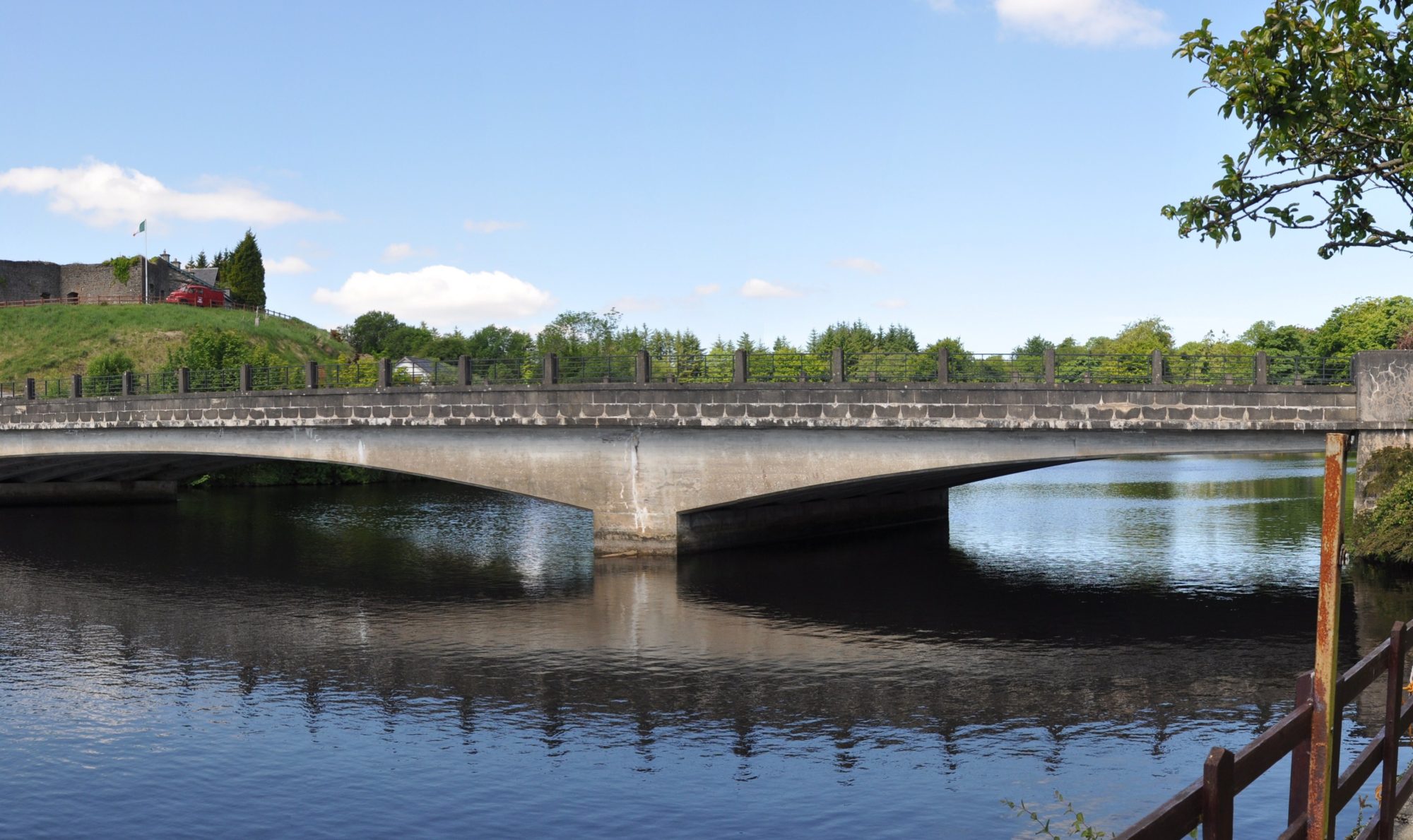
Zinc, rubber, cable, lead. 34 x 68 x 33 cm. IMMA Collection: Loan, Weltkunst Foundation, 1994.
I was drawn to this small work called Glad That Things Don’t Talk (1982) by English artist Richard Wentworth, on loan to the Irish Museum of Modern Art (IMMA). It is typical of his whimsical found or fabricated constructions but was also quite specific to my situation at the time since, after trudging in the rain from the Hugh Lane Gallery to see Francis Bacon’s reconstructed studio, to EPIC and then on to Trinity College to see the Book of Kells followed by the long stretch to IMMA, I rather fancied the thought of galoshes, bearing in mind that my trousers were wet to the knees. I also identified with the lead ball attached to the back of the overshoes since, at the time, I felt like one of those old dogs who sit down on the pavement in the middle of a walk and refuse to move.
While I was in Dublin, it had either just stopped raining, was raining, or was about to rain. After I got to Cavan, the next two days hovered between teeming and torrential. On the Friday, the weather report on the radio promised a ‘heatwave’ for the next few days. The radio announcer interjected wryly: ‘Sure, it’ll be an Irish sort of a heatwave: a damp one, in other words’. We are in the boglands, so expect a bog. By midday, though the temperature was only around 21 degrees, locals were sweating buckets and mopping their brows ostentatiously. I suspect they were hoping for the return of the rain.
In his account of a trip to Ireland in the mid-1950s (Irish Journal: A Traveller’s Portrait of Ireland), Heinrich Böll writes that ‘The rain here is absolute, magnificent, and frightening. To call this rain bad weather is as inappropriate as to call scorching sunshine fine weather’. Rain also features heavily in Colm Tóibín’s account of his walk along the border in the 1980s, at the height of the Troubles. An old fellow he meets along the way rather gleefully welcomes the onset of rain since it signals the promise of a warm pub: ‘Nothing for it but the high chair!’ On another occasion, Tóibín is feeling creeped out on a lonely lane near Kiltyclogher when he sees a man coming towards him ‘in a way which was deliberate and ominous. I considered turning back. I stared straight at him as he came close. “It rains oftentimes,” he said, as he passed me by.’
It’s a matter of fact.
